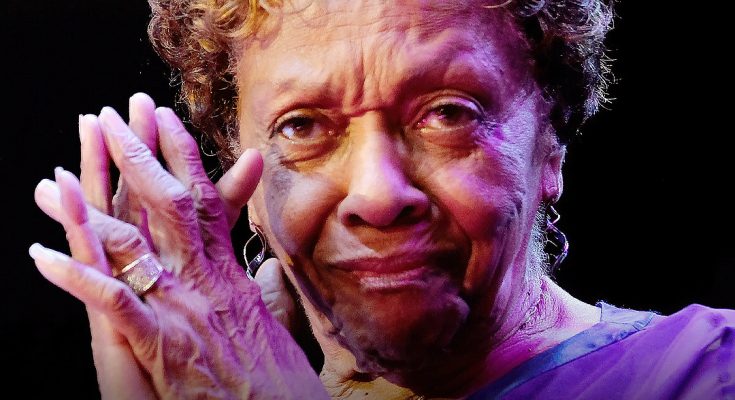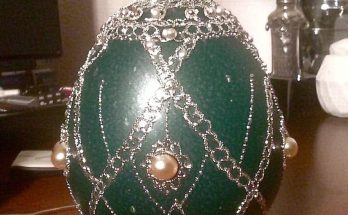When Cissy Houston walked into her daughter Whitney Houston’s home and saw disturbing images painted on the walls, she knew something was terribly wrong. Take a closer look at the ups and downs of their relationship and how Cissy fought to try and save her daughter from addiction.
Cissy Houston, a gospel icon with a long and successful career, recently passed away. She was also known as Whitney Houston’s mother and profoundly influenced the “I Will Always Love You” singer’s life.
Whitney and Cissy Houston circa 1984. | Source: Getty Images
However, behind Whitney’s rise to fame was a growing personal struggle her mother couldn’t ignore. During a visit to Whitney’s home, Cissy discovered something deeply unsettling — images that signaled how serious her daughter’s issues had become.
Faced with a difficult decision, Cissy took bold action in a desperate attempt to get her daughter the help she needed. Read on to explore the events that unfolded and how Cissy fought to protect her daughter.
Cissy and Whitney Houston posing for a portrait in the backyard of their home, West Orange, New Jersey, on May 28, 1985. | Source: Getty Images
Cissy Houston’s Passing and Bobby Brown’s Tribute
Cissy Houston passed away on October 7 at 91. She died while under hospice care, battling Alzheimer’s disease. Cissy’s legacy in the music world was significant — she worked with top artists like Aretha Franklin and Elvis Presley, and her powerful voice set the stage for a seven-decade career.
Born Emily Drinkard in Newark, New Jersey, in September 1933, Cissy was raised in a devout Christian household. Her father, Nitcholas Drinkard, encouraged her musical talent early on, urging her to sing and perform in church.
She grew up in the Methodist Episcopal denomination, which heavily influenced her faith and later her music. She eventually became the Minister of Sacred Music at New Hope Baptist Church, where her deep connection to gospel music flourished.
Cissy Houston circa 1977. | Source: Getty Images
She was also widely recognized for helping her daughter become one of the greatest pop icons of all time. Cissy sang backup on Whitney’s self-titled debut album in 1985 and even contributed vocals on tracks like “I Know Him So Well” and “Who Do You Love?”
As Whitney rose to superstardom, winning Grammy Awards and selling millions of records worldwide, Cissy remained by her side — especially during Whitney’s personal struggles and troubled marriage to ex-husband Bobby Brown.
Following Cissy’s passing, Bobby paid tribute to her, writing, “Sending love and blessings to the Houston family on this great loss. May she rest in Peace and Power.”
Bobby Brown, Whitney Houston, and Cissy Houston at the Franklin School Renaming Announcement on June 12, 1997, in East Orange, New Jersey. | Source: Getty Images
Cissy and Whitney Houston’s Complicated Relationship
As Whitney’s career soared in the 1990s, so did her struggles with drug addiction. Though Cissy had heard rumors about her daughter’s drug use for years, those around Whitney often hid the full extent of the problem from her mother.
Music executive Clive Davis, who had worked closely with Whitney, tried to express his concerns, but Whitney’s team kept Cissy largely in the dark. By the mid-2000s, Cissy’s suspicions had grown.
Cissy and Whitney Houston at the 40th Annual Grammy Awards pre-party on February 24, 1998, in New York. | Source: Getty Images
In 2005, she visited Whitney’s home in Atlanta, confirming her worst fears. The house was in complete disarray, with strange and unsettling images spray-painted on the walls and doors.
Cissy recalled how “big glaring eyes and strange faces” were drawn all over the house. Perhaps the most disturbing sight was a family photograph in which Whitney’s face had been cut out.
Whitney and Cissy Houston appearing on a special that celebrated mothers in 1987. | Source: Getty Images
Cissy was horrified and realized that her daughter’s drug problem had escalated to a dangerous level. Determined to take action, Cissy returned to Whitney’s house with two sheriff’s deputies.
She insisted on taking her daughter to the hospital, knowing that she couldn’t stand by any longer. Whitney reacted angrily, cursing her mother and refusing help, but Cissy remained resolute.
Cissy and Whitney Houston leaving the 21st Annual Songwriters Hall of Fame Induction Ceremony and Awards Dinner on May 30, 1990, in New York. | Source: Getty Images
She knew that despite the pain it caused their relationship, it was the only way to protect her daughter from further harm. With time, Whitney acknowledged the intervention and admitted that her mother’s actions saved her life.
Cissy’s concerns about her daughter’s well-being were not limited to Whitney’s drug addiction. She also had reservations about the “I Will Always Love You” singer’s marriage to Bobby.
Bobby Brown and Whitney Houston at the 26th Annual NAACP Image Awards on January 5, 1994, in Pasadena, California. | Source: Getty Images
The couple’s 15-year marriage was riddled with reports of substance abuse, public arguments, and legal issues, all of which played out in the media spotlight. Bobby, for his part, later expressed regret over the role drugs played in the breakdown of his marriage.
“We always felt that our love was strong enough to overcome any obstacle that was put in front of us. We would still be together if it wasn’t for, you know, drugs. Drugs just got the best of us,” the R&B star said.
Bobby Brown and Whitney Houston at The Clive Davis Arista Records Pre-Grammy party on February 28, 1994, in New York. | Source: Getty Images
When Whitney and Bobby divorced in 2007, Cissy felt a sense of relief and humorously remarked that she thanked God so much that she was sure no one else was able to get a prayer in.
Sadly, Whitney’s struggles persisted, and the singer’s sudden death in 2012 at 48 was a devastating blow to her family and fans around the world. Cissy later shared her thoughts on what contributed to her daughter’s untimely death.
She spoke about how Whitney was a kind, gentle person who “got caught up somewhere” and went down the wrong path. “My baby tried. She did. She just had the wrong partner, you know?” Cissy said.
Though Cissy’s relationship with Whitney was strained during the most challenging years of her daughter’s addiction, she never wavered in her love or commitment to helping her daughter.
Cissy’s efforts to help Whitney, though sometimes painful and difficult, came from a place of deep love, and her legacy as a mother who fought for her daughter until the end remains as strong as her contributions to the world of music.



